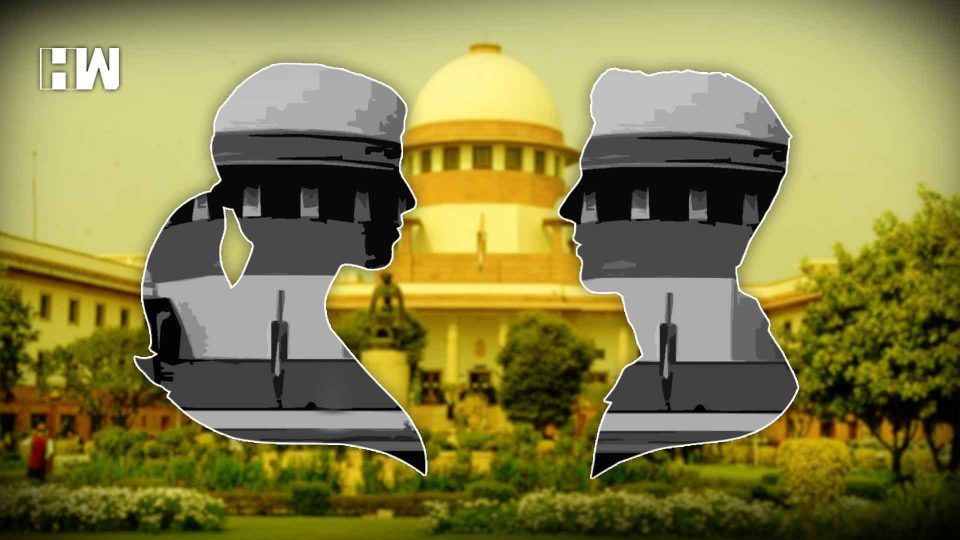The center reiterated the need for anti-adultery laws to protect the ‘sanctity of marriage and institution of the family’.
The month of September in the year 2018 will be remembered in India’s judicial history as the month of landmark judgments. Almost 150 years after its inception, the Supreme Court of India finally struck down the archaic Section 497 of Indian Penal Code, popularly known as the “Adultery Law”. In the historic judgment, the five-judge Constitution bench, headed by Chief Justice of India Dipak Misra observed that it violated Article 14 of the Constitution, which provides equality before the law. “It’s time to say the husband is not the master,” CJI Dipak Mishra said while reading out the judgment. The constitution bench unanimously made an observation that Adultery in itself can be a ground for civil issues including divorce, however, it cannot amount to a criminal offense.
On September 6 i.e. earlier this month, the Supreme Court struck down another retrograde Victorian-era law that decriminalized consensual sex between homosexuals under Section 377 of the IPC. The five-judge SC bench headed by CJI Dipak Mishra observed that Section 377 is not only irrational and indefensible but also manifestly arbitrary. “The history owes an apology to the LGBTQ community,” said Justice Indu Malhotra. In a concurring judgment, Chief Justice of India Dipak Mishra made an important point- “Majoritarian views and popular morality can’t dictate constitutional rights.”
At a time when the dark clouds of little regard for constitutional rights bestowed upon an individual have surrounded us, these Supreme Court judgments come across as a ray of hope. Be it repealing Section 377 that forced India’s LGBTQ community live under the rock of fear of criminality or the repealing of Section 497 of IPC that made adultery a criminal offense. The SC judgments in both the cases have reinstated the fact that in Indian democracy, the constitutional morality overrides that popular morality or beliefs. It puts the constitutional liberties and individual privacy at the Supreme. But how did Indian society turned out to be such a narrow-minded and guarded about the sexuality of its community members? For all we know, the ancient Indian Culture was the epitome of liberalism where Individual freedoms and preference and sexual choices were respected. History bears the reference to the same.
The idea that gay sex or even adultery are inherently criminal was originated from the Victorian era colonialism. Though, most of the western countries including Britain did away with the archaic laws, much before India took the historic step. However, the vestiges of the laws are still very much apparent in the popular conscience today.
While passing the judgment on these two important issues, the Supreme Court underlined a major issue. The morality does not always have to be the ground to decide whether an act is criminal or not, that if something is not morally right does not necessarily be wrong legally too. The laws of the land should keep their hands off the personal choices of the individuals as long as it does not harm others. For example, in the case of adultery, as the SC judges observed, the act can only be termed criminal if it abets suicide. Or like, in the case of Section 377, unnatural sex with animals is still criminalized while the sex between two consenting adults has been decriminalized. The idea that there should be legal restrictions on two consenting adults choosing sexual partners of their choice because the choices don’t fit the moral grid laid down by the society at large, undermines the constitutional rights guaranteed to every individual in the democracy.

What is more surprising is that the governments who should be protecting these constitutional freedoms are the ones denigrating it. In its response to the Supreme Court on July 12 this year, the center reiterated the need for anti-adultery laws to protect the ‘sanctity of marriage and institution of the family’ and any attempt to do away with these laws would hurt “Indian ethos”. Incidentally, the same government also in an affidavit said that what “may appear to be marital rape” to a wife “may not appear so to others”. The central government took a stand against criminalizing marital rape saying that it “may destabilize the institution of marriage.”
Nonetheless, the Supreme Court judgments come as a silver lining. Since last year’s ground-breaking judgment making Privacy a fundamental right, the Supreme Court has come a long way in terms of restoring and protecting the individual liberties and choices. For those constantly batting for the cause, the Supreme Court was no less than a hero without the cape.
As an independent media platform, we do not take advertisements from governments and corporate houses. It is you, our readers, who have supported us on our journey to do honest and unbiased journalism. Please contribute, so that we can continue to do the same in future.


